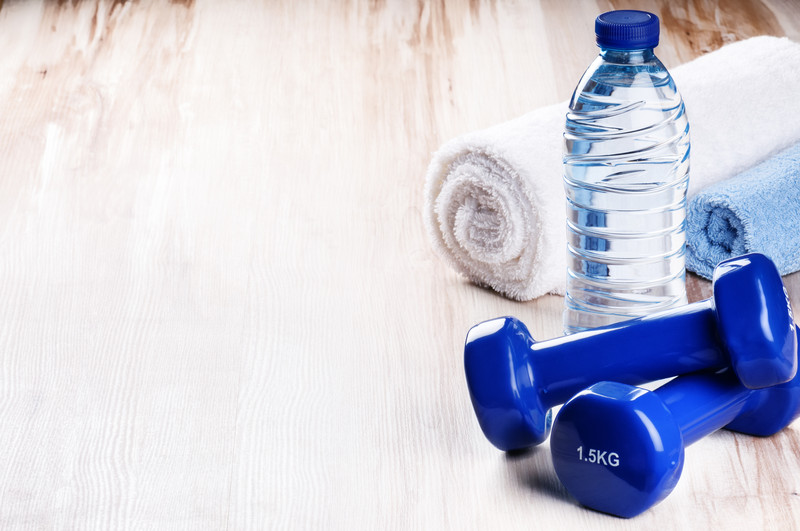Irrigation before and after training

Water and Electrolyte is important to the proper functioning of the body and the intense physical effort becomes deeper meaning and must care for her in order to avoid unnecessary problems and discomfort during and after training. The most important is water, which is an average of 55-60% of an adult's body, and its content depends on age, sex and percentage of body fat. Water at 92% is a component of blood plasma, which helps transport oxygen to the muscles and other vital organs and that gives us strength. The lungs and the brain is 80% water, so the lack causing poor concentration. Without high moisture content in the body is not possible to breathe, ingestion, excretion and the digestion of food.
The large loss of water can cause dehydration of the body and manifest in the form of:
• increased thirst
• less frequent urination (and even if we give it, it is in the dark yellow)
• dryness of the oral mucosa and tongue
• wzdętego belly
• lack of appetite
• halt perspiration
• drying of the skin
• or dizziness
Dehydration physical performance declines and deterioration of athletic performance. The shortage of water in the body slows addition, postprandial regeneration. I admit that the problem affected me, and not just once. Explaining that there was no time, and I forgot about the water before training, there is no excuse. Irrigation of the body is recommended throughout the day as well as during exercise is the most desirable, of course, but then in moderation. If you want us terribly drink it means that there is sufficient nawodniliśmy before training and body to some extent, is dehydrated and demands of water. We do not drink hectoliters at a time when only gradually supply the water to the body best small sips. Let us remember the well water after exercise. As our urine is dark or have dizziness (as above), it means that our body is deodorised and you have to deliver the best liquids in small quantities and often.
As for the electrolytes or sodium, potassium, calcium and magnesium, which are fluids in our whole body, ie. In the blood plasma and tissue fluids, even in the case of trying to prevent the loss of large quantities. Electrolytes are usually lose during increased physical means, eg. On a cross-country, as well as when the body is struggling with a virus. Symptoms include general weakness, tremors and muscle spasms, high blood pressure or even fainting. Sodium helps to keep fluid in the body and to maintain body temperature. Potassium is required for the synthesis of proteins and affects the normal heart rhythm. Calcium activates the muscle contraction and affects normal bone structure. Magnesium in turn is responsible for the correct transmission of nerve impulses.
As we run a Spartan Race potassium replacement if the magnet is very important, especially against the same competition. We are saving the then-type agents: minerals in tablets, highly mineralized water naturally or with food rich in potassium and magnesium, and calcium. Not once we passed players who struggled with cramps on the route.
The demand for water and electrolytes is an individual matter and depends on the lifestyle we lead and the weather. We know the more we sweat in hot weather like this it needs to grow the same applies to exercise, the more the effort the greater the demand. Remember liquids is not only water but also tea, fruit or soup. Sports drinks are beneficial during intense efforts and long-term and after exercise, as they allow for quick loss supplement of carbohydrates, but also not exaggerate them.
And exercise or running on a "hangover"? The body at the start is dehydrated, and this is not desirable, although I admit that we sometimes :-). I would recommend whereas before and during the workout drinking still mineral water, and after training as most carbonated water (as someone so fond).
In conclusion it is not indicated:
- Too much fluid before training or start to rehydrate instead of the regular supply of fluids throughout the day
- With plenty of fluids during your workout or run because your body feels deficiencies before starting
- Too much caffeine and energy drinks, which dehydrate and leach magnesium
- Too much alcohol the day before the competition
- Running at very high temperatures.